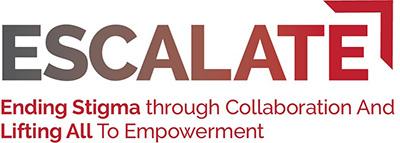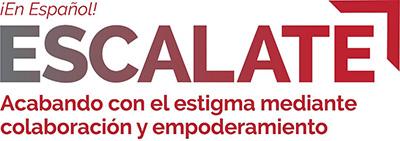ESCALATE will implement a Learning Collaborative from April 2023 to July 2024 with up to 16 RWHAP recipients/sub-recipients who are seeking to address HIV stigma experienced by their staff and/or clients. Organizations will participate in a multi-step process of developing, planning, implementing, evaluating, and refining a Stigma Reduction Initiative for a specific population of focus.
They will receive coaching, opportunities for peer-to-peer learning, and support from stigma-reduction subject matter experts. In addition, they will engage in collaborative tracking of progress and practice continuous quality improvement techniques intended to enhance their Initiative over time.
Application Process and Criteria
Apply for an ESCALATE Learning Collaborative
ESCALATE Learning Collaborative FAQs PDF
To be eligible for participation in the ESCALATE Learning Collaborative, organizations must:
- Be either a HRSA RWHAP Part A-D funded recipient or sub-recipient.
- Be committed to developing, implementing, and evaluating an evidence-informed, comprehensive, Stigma Reduction Initiative to address HIV stigma experienced by your organization’s staff and/or clients.
- Have written commitment from your organization’s leadership to provide resources and tangible support for the development, implementation, and evaluation of a Stigma Reduction Initiative.
Organizational change takes a village! Therefore, each organization applying for the ESCALATE Learning Collaborative will need to identify a team of 4-6 participants who will form a Stigma Reduction Team.
This team must include:
- Someone in a leadership position to implement changes at the organization and assign resources to the Initiative. This person will act as the Stigma Reduction Change Agent and will lead the Stigma Reduction Team.
- Individuals who represent members of the population(s) that your Stigma Reduction Initiative seeks to serve.
- People who represent a wide range of roles and seniority within your organization including both client-facing staff, such as front line staff, case managers, patient educators or navigators, and/or providers, as well as administrative and other vital support staff who don’t regularly interact with clients, including staff involved in human resources, billing, and finance.
The Stigma Reduction Team will need to jointly complete an online application by gathering information, meeting as a team to decide on inputs, and obtaining written support for their application from their organization’s leadership.
Structure
The structure of the Learning Collaborative will include an initial Orientation Meeting, during which Stigma Reduction Teams will meet each other and their assigned coaches, get oriented to the developmental process, and then begin laying the groundwork for their Stigma Reduction Initiative. Then, over the course of the Learning Collaborative, Stigma Reduction Teams will participate in six Learning Sessions with five Action Periods between them.
Learning Sessions
Learning Sessions are interactive meetings that are facilitated via online video conferencing that offer an opportunity for organizations’ Stigma Reduction Teams to interact with and learn from each other as well as subject matter experts as they develop, formalize, implement, evaluate, and refine their Stigma Reduction Initiative.
Each Learning Session involves a:
- Learn segment that feature facilitated discussions as well as didactic and interactive presentations by subject matter experts intended to build their knowledge about stigma reduction.
- Prepare segment that introduces Stigma Reduction Teams to the activities they will be conducting during the following Action Period as well as the tools the LC team created to support them in each step of their development process.
- Apply segment that allows Stigma Reduction Teams to begin applying what they’ve learned in the Learn segment using the tools described in the Prepare segment to begin working on the activities they will complete during the following Action Period with support from their coach, as well as a
- Share segment where SRTs share their progress toward developing their Stigma Reduction Initiative including:
- Discussing similarities and differences between their organizations, client populations, and initiatives.
- Providing each other with input and brainstorming solutions to challenges that emerge.
The Action Periods are 2-3 month periods between the Learning Sessions, during which Stigma Reduction Teams are expected to complete assignments that support the development of Stigma Reduction Initiatives. They will be supported by a regular check-in with their coaches who will discuss progress and help organizations problem-solve and find resources), as well as regular Affinity Group Meetings with similar organizations.
ESCALATE is supported by the Health Resources and Services Administration (HRSA) of the U.S. Department of Health and Human Services (HHS) and the Minority HIV/AIDS Fund (MHAF) as part of a financial assistance award totaling $1,600,906 100 percentage funded by HRSA/HHS. The contents are those of the author(s) and do not necessarily represent the official views of, nor an endorsement, by HRSA/HHS, or the U.S. Government.


